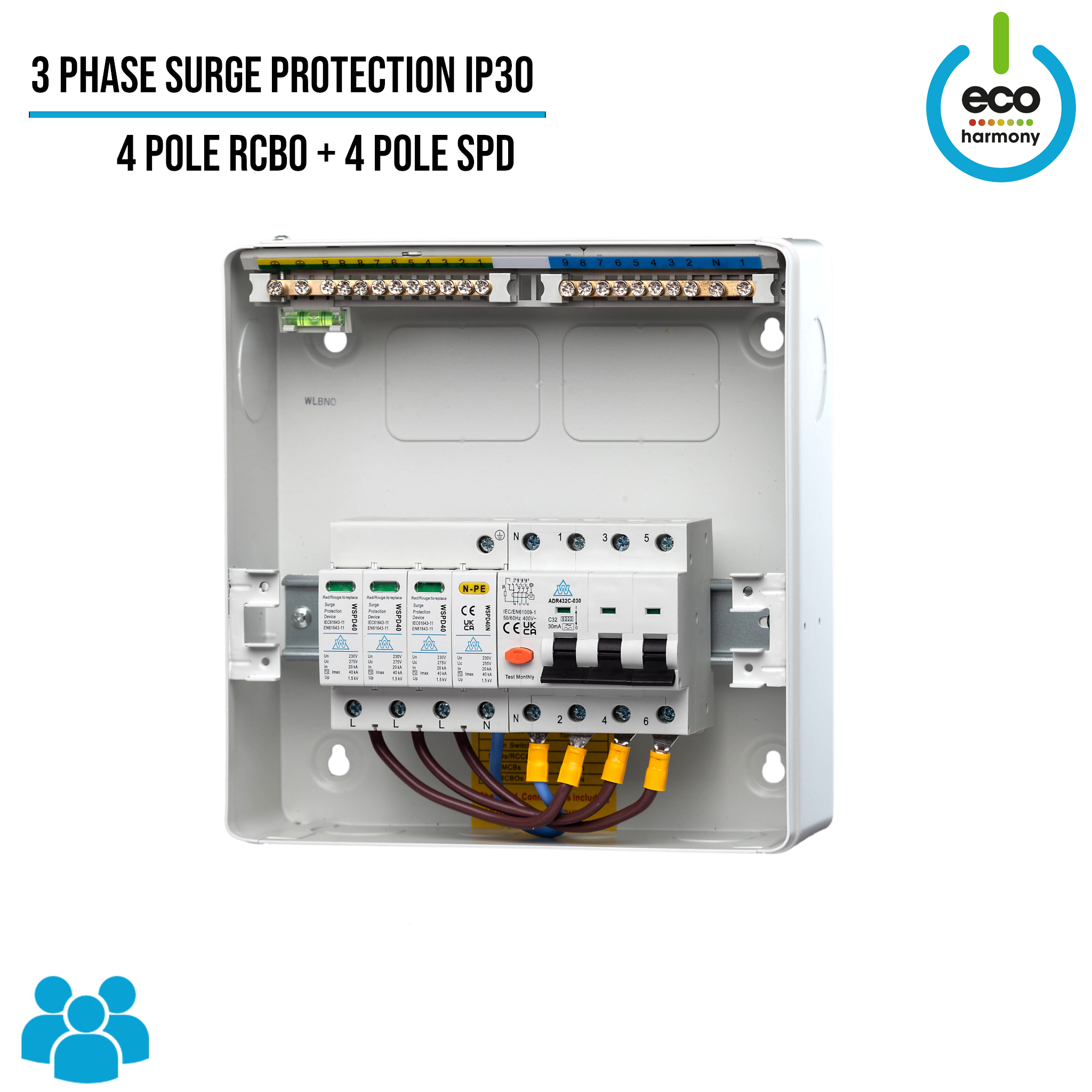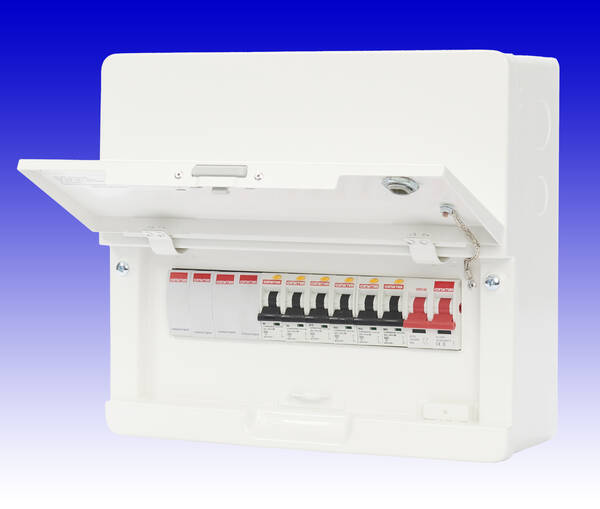Why Upgrading to Advanced RCBO CONSUMER UNITS is Important for Safety
Why Upgrading to Advanced RCBO CONSUMER UNITS is Important for Safety
Blog Article
The Duty of Customer Systems in Reliable Power Management Systems
Consumer systems are integral to effective power management systems, serving as the main circulation factors for electric power within structures. By incorporating circuit breakers, they secure circuits from prospective overloads, thus maintaining security and avoiding considerable failures. The advent of smart innovations has better enhanced their performance, enabling real-time information tracking and nuanced power usage evaluation. This assimilation not just maximizes power usage but likewise facilitates the consolidation of renewable energy resources, thereby promoting lasting techniques. How, after that, do these developments translate to substantial advantages in daily power administration?
Understanding Consumer Devices

Comprehending the function of customer devices starts with identifying their crucial function in protecting electrical systems. By separating faults within particular circuits, consumer devices stop widespread outages and possible fire threats. This seclusion is achieved with the use of breaker that journey or merges that impact when a mistake is identified, therefore removing the electrical circulation to the impacted circuit.
Additionally, consumer devices promote the orderly distribution of power, boosting the efficiency of power use. They enable for the organized administration of electrical lots, which can be particularly vital in business and industrial setups where demand can rise and fall substantially. Properly maintained customer devices add to the longevity of electric systems and aid in decreasing downtime triggered by electric failures, eventually sustaining the seamless procedure of energy-dependent facilities.
Smart Technologies Integration

A key benefit of smart consumer systems is their capacity to leverage advanced algorithms and artificial intelligence for anticipating analytics. This permits preemptive modifications based upon usage patterns, weather report, and various other variables, considerably raising total efficiency. Moreover, smart consumer systems promote need response programs, where energy usage can be dynamically adjusted during top durations to maintain the grid and lower prices.
The assimilation of renewable resource sources, such as solar and wind, is likewise streamlined with wise customer systems. By intelligently managing the intermittency of these sources, these units guarantee a balanced and trustworthy power supply. In addition, wise customer systems boost user involvement by providing detailed insights and remote control capabilities through mobile applications, cultivating an extra proactive approach to energy preservation and sustainability.
Surveillance Energy Intake
Structure on the abilities of smart technologies integration, monitoring energy intake becomes an essential emphasis within energy monitoring systems. By leveraging advanced metering infrastructure (AMI), real-time data on power use can be collected at granular levels, offering important understandings right into intake patterns and peak demand periods.
Smart meters and Net view of Points (IoT) gadgets play a pivotal role in this surveillance process. These gadgets can track energy use in real-time, sending data to central systems for evaluation.
The integration of these technologies not just encourages consumers with thorough details about their energy use yet likewise supports energy suppliers in managing load circulation more effectively. Eventually, exact and continuous monitoring is essential for achieving power performance, cost savings, and sustainability objectives within power monitoring systems.
Optimizing Home Appliance Usage

One efficient approach entails determining peak and off-peak hours to move energy-intensive activities, such as washing or dishwashing, to times when power demand is reduced. This not only lessens strain on the grid yet additionally maximizes lower energy tolls. Furthermore, incorporating artificial intelligence formulas allows for predictive upkeep, making certain devices operate at ideal efficiency and extending their life-span.
Energy administration systems can additionally incorporate user-specific preferences and habits to tailor appliance use schedules. As an example, wise lights systems can change illumination based upon occupancy and natural light schedule, while HVAC systems can keep convenience levels without excessive power use.
Supporting Sustainability
Advertising sustainability within energy monitoring systems involves not just boosting performance yet likewise cultivating eco liable methods. Consumer units are important to this procedure, as they provide real-time information and control mechanisms that allow customers to monitor and lower their energy consumption. By leveraging sophisticated innovations, customer units can recognize energy-saving chances and promote the integration of renewable resource sources like solar and wind power.
One vital element of advertising sustainability is educating customers on the advantages of responsible energy use. With detailed insights offered by customer units, individuals can make informed choices that minimize their carbon footprint. These systems can advise optimum times for running high-energy devices based on grid demand and renewable energy availability, thus minimizing reliance on fossil gas.
Furthermore, customer systems support the adoption of clever grid modern technologies, which enhance the total efficiency and reliability of energy distribution. By making it possible for two-way interaction between customers and energy suppliers, these systems can dynamically adapt to energy needs, decreasing waste and promoting the usage of sustainable power techniques.
Verdict
Customer devices, as integral components of energy management systems, significantly boost find out here electric security and efficiency within buildings via circuit defense and smart modern technology assimilation. Real-time data tracking and evaluation promoted by these units enhance power usage and device use. Additionally, the unification of sustainable energy resources Get the facts promotes lasting methods, contributing to reduced overall energy usage and lower carbon impacts. Customer devices play an essential function in progressing both power efficiency and ecological sustainability.
Breakthroughs in clever modern technologies have actually revolutionized the abilities of energy administration systems, especially via the integration of wise consumer devices.Structure on the capacities of clever technologies integration, checking energy usage becomes a vital focus within power monitoring systems.Reliable home appliance use optimization is an important part of power administration systems, aiming to improve effectiveness and reduce unneeded energy consumption.Customer devices, as integral elements of power monitoring systems, considerably enhance electric safety and security and performance within structures via circuit protection and wise technology combination. Furthermore, the consolidation of eco-friendly energy sources advertises lasting methods, adding to reduced total power intake and reduced carbon footprints.
Report this page